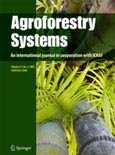This paper investigates the adoption of discourses on Reducing Emissions from Deforestation and forest Degradation (REDD+) across different national contexts. It draws on institutional theories to develop and test a number of hypotheses on the role of shared beliefs and politico-economic institutions in determining the discursive choices of policy actors. The results show that win-win ecological modernization discourse, embraced by powerful government agencies and international actors, dominates national REDD+ policy arenas. This discourse is challenged primarily by a minority reformist civic environmentalist discourse put forward primarily by domestic NGOs. We find evidence that countries with a less democratic political system and large-scale primary sector investments facilitate the adoption of reconciliatory ecological modernization discourse, which may not directly challenge the drivers of deforestation. Policy actors who believe in and are engaged in market-based approaches to REDD+ are much more likely to adopt ecological modernization discourses, compared to policy actors who work on community development and livelihoods issues.
DOI:
https://doi.org/10.1016/j.gloenvcha.2017.05.006
Altmetric score:
Dimensions Citation Count:
























